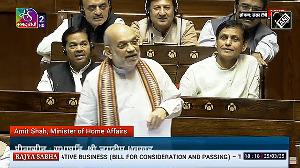The transactions were allegedly not reported correctly in the tax returns for FY20.

The Income-Tax Department has selected 68,000 cases of 'high-value' transactions that were allegedly not reported correctly in the tax returns for FY20 for e-verification, Central Board of Direct Taxes (CBDT) Chairman Nitin Gupta said.
These are individual and corporate transactions and are being flagged due to mismatches in their Annual Information Statement (AIS) and the I-T returns filed during the period.
"These 68,000 cases were picked up based on risk parameters set internally by the department. Of those, about 56 per cent have been concluded and the taxpayers have filed updated returns," the CBDT chief said. In the remaining cases, there has been no response.
The AIS has the taxpayer's financial transactions, including bank deposits and share selling and buying.
The e-verification scheme, operationalised in September last year, verifies information received from financial entities with the details filed in the ITR by the taxpayer.
Under the scheme, the taxpayer can file updated returns in case the entity finds the mismatch flagged in the e-verification notice is correct.
In cases where there is no response, the tax department prepares a verification report, which could further go for risk assessment and could be picked up for reassessing returns.
The deadline to file updated income tax returns is March 31, 2023, for Assessment Year (AY) 2020-2021 (FY20).
The department informs a taxpayer electronically about his case picked up for e-verification, and gives 15 days to respond.
The CBDT has a timeline of 90-120 days for completing a case under e-verification.
Talking about the updated returns, Gupta said 1.5 million updated returns had been filed so far and Rs 1,250 crore was collected as tax.
The Finance Act, 2022, introduced this new ITR filing facility, known as an updated return.
A new sub-section 8(A) was added to Section 139 of the Income-Tax Act for this purpose. This scheme came into effect on April 1, 2022.
This new section provides the chance to update the ITR within two years.
Notably, two years will be calculated from the end of the year in which the original return was filed.
"The e-verification scheme is a non-intrusive way to nudge taxpayers to file updated returns in the case of mismatch. It is transparent, without any human interface, encourages voluntary compliance and would help cut litigation," Gupta said.
However, an updated return cannot be filed if search and survey or prosecution proceedings are initiated against the assesse.
Feature Presentation: Ashish Narsale/Rediff.com











 © 2025
© 2025